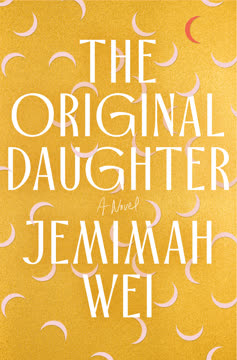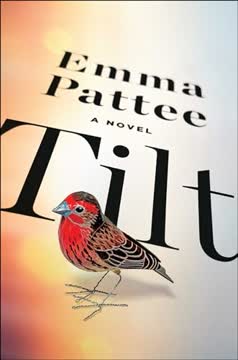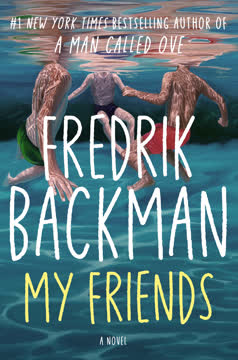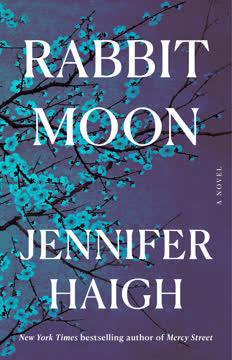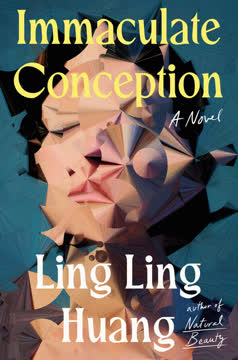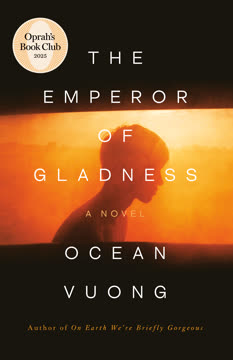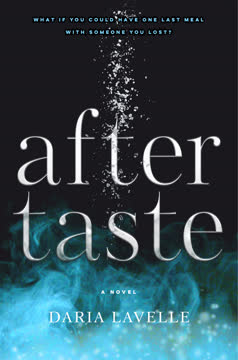Plot Summary
Sisters, Divided by Silence
Genevieve and Arin, once inseparable, are now estranged, their relationship fractured by years of rivalry, misunderstanding, and the weight of family expectations. When their mother, Su Yang, falls gravely ill, Genevieve is forced to confront the possibility of losing both her mother and the last thread connecting her to Arin. The story opens with Genevieve's resistance to her mother's plea to reunite with Arin, revealing a deep well of resentment and pain. The narrative is set in Singapore, where the family's modest life is shaped by generational trauma, economic hardship, and the unspoken rules of filial piety. As Su Yang's illness progresses, the urgency to reconcile grows, but Genevieve's sense of betrayal and inadequacy keeps her from reaching out, even as the world around her—her job, her friendships, her sense of self—begins to unravel.
The Arrival of Arin
Arin enters the Yang family not as a baby, but as a seven-year-old, the product of a secret second family across the border in Malaysia. Her arrival is orchestrated by the family matriarch, who wields her authority to force the family to accept this new child. Genevieve, only a year older, is both threatened and fascinated by Arin, whose presence upends the delicate balance of their cramped HDB flat. The girls' initial interactions are awkward, marked by suspicion and a struggle for territory—emotional and physical. Yet, through shared adversity and the need to survive their grandmother's cruelty, a bond forms. The sisters create a secret contract of sisterhood, a blood pact that promises loyalty "till death do us part," even as the adults in their lives remain unreliable and self-absorbed.
Family Secrets and Sacrifice
The Yang family's history is riddled with secrets: a grandfather who abandoned his family, a grandmother hardened by war and loss, a mother who sacrificed her own future for her children. The cramped apartment is a crucible where love and resentment simmer. Genevieve's mother, Su Yang, is a force of nature—irreverent, resourceful, and manipulative—who both nurtures and wounds her daughters. The family's survival depends on small acts of rebellion and adaptation: smuggling library books, running a black-market tutoring business, and navigating the shifting allegiances of the neighborhood aunties. The girls learn early that love is transactional, and that survival often means choosing between self and family.
The Contract of Sisterhood
In the aftermath of their grandmother's death, Genevieve and Arin formalize their bond with a contract of sisterhood, signed in blood. This act, meant to secure their loyalty to each other, becomes both a source of comfort and a future curse. As they grow, the contract is invoked in moments of crisis and betrayal, a reminder of promises made in innocence but tested by the complexities of adulthood. The sisters' relationship is marked by cycles of closeness and distance, shaped by jealousy, competition, and the longing for unconditional love. The contract, hidden in a tin under the bed, becomes a symbol of both hope and the impossibility of ever truly escaping each other.
The Season of Success
Genevieve excels in school, driven by a need to prove herself worthy in a world that values achievement above all. Her success, however, isolates her from her peers and deepens the rift with Arin, who struggles to find her own place. The family's fortunes rise and fall with the mother's entrepreneurial schemes, but the cost is high: emotional neglect, public scandal, and the slow erosion of trust. The sisters' rivalry intensifies as they compete for their mother's approval and the limited resources of their world. The "season of success" is both a triumph and a trap, as the girls learn that excellence can be as lonely as failure.
Rivalries and Resentments
As adolescence gives way to young adulthood, the sisters' relationship is tested by betrayal, misunderstanding, and the corrosive effects of envy. Genevieve's academic flameout and Arin's unexpected rise as a YouTube personality invert their roles, leaving both unmoored. Their attempts to support each other are undermined by old wounds and the fear of being left behind. The family is further destabilized by their father's emotional affair and eventual departure, a loss that exposes the fragility of their remaining bonds. The sisters' rivalry, once playful, becomes existential, as each struggles to define herself against the other.
Collapse and Estrangement
A series of crises—academic failure, public scandal, and the mother's declining health—culminate in the family's collapse. Genevieve, unable to find her footing in Singapore, flees to New Zealand, seeking reinvention and escape from the shadow of her sister. Arin, left behind, channels her pain into ambition, determined to succeed where her sister failed. The sisters' contract of sisterhood is tested as never before, as distance and silence harden into estrangement. Each believes the other has betrayed their bond, and the possibility of reconciliation seems remote.
The Pursuit of Individuality
In Christchurch, Genevieve experiences a brief period of joy and freedom, unburdened by family expectations. She forms new friendships, explores her identity, and begins to heal. Yet, trauma—both past and present—haunts her, culminating in an assault that leaves her physically and emotionally scarred. Arin, meanwhile, leverages her online fame into an acting career, but her success is shadowed by the knowledge that her greatest performance is built on her sister's pain. The sisters' lives run in parallel, each haunted by the other, each unable to fully escape the gravitational pull of their shared history.
Exile and Reinvention
Genevieve's exile is both a liberation and a punishment. She finds work, love, and a measure of peace, but the wounds of her childhood and her complicated relationship with Arin remain unresolved. Arin's ascent in the entertainment industry is meteoric, but her most acclaimed role—a scene of sexual assault in a film—draws directly from Genevieve's trauma, a betrayal that shatters any hope of reconciliation. The sisters' contract, once a source of strength, becomes a weapon, as each accuses the other of breaking faith. The cost of ambition is revealed to be the loss of trust, and the realization that success cannot heal the wounds of the past.
The Price of Ambition
Arin's film becomes a global sensation, but the acclaim is tainted by controversy and the exposure of the sisters' private pain. Genevieve, devastated by the appropriation of her trauma, cuts off all contact, retreating further into isolation. Their mother, caught between her daughters, is powerless to bridge the gap. The family's story becomes public property, dissected by strangers, while the sisters are left to grapple with the consequences of their choices. The price of ambition is revealed to be the loss of intimacy, the impossibility of forgiveness, and the knowledge that some wounds can never be healed.
Betrayal and Reckoning
When their mother's illness becomes terminal, Genevieve is forced to reach out to Arin, setting the stage for a final reckoning. The sisters' reunion is fraught with accusation, regret, and the desperate hope for absolution. Each must confront the ways they have hurt and been hurt, the lies they have told themselves and each other, and the reality that love is not always enough. Their mother's death is both an ending and a beginning, a moment of clarity that exposes the limits of forgiveness and the enduring power of memory.
The Final Request
Su Yang's last request is simple: she wants to see her daughters together one last time. The sisters, each carrying the weight of their shared and separate histories, must decide whether to honor her wish or remain locked in their own pain. The hospital room becomes a crucible where old grievances are aired, apologies are offered and rejected, and the possibility of reconciliation flickers and fades. The mother's death is quiet, unremarkable, but it leaves a void that neither daughter knows how to fill.
Reunion at the End
In the aftermath of their mother's death, Genevieve and Arin are left alone together for the first time in years. Their conversation is halting, raw, and honest, as they attempt to make sense of what has been lost and what, if anything, can be salvaged. The contract of sisterhood, once a source of comfort, is now a painful reminder of promises broken and the impossibility of returning to innocence. The sisters part with no guarantees, only the knowledge that love, once fractured, can never be fully restored.
The Last Goodbye
The sisters' final parting is marked by a mixture of relief, sorrow, and the faintest glimmer of hope. Each is changed by the journey—humbled, wounded, and wiser. The family home, once a site of chaos and love, is now a mausoleum of memory. Genevieve is left to sort through the detritus of her life, searching for meaning in the objects and promises that remain. Arin returns to her life of fame and performance, carrying the scars of her choices. The story ends not with resolution, but with the recognition that some questions have no answers, and that the work of healing is ongoing.
What Remains Unsaid
In the quiet aftermath, Genevieve reflects on the nature of love, loss, and the stories we tell ourselves to survive. The contract of sisterhood, now missing, becomes a metaphor for all that is lost in the passage of time: innocence, trust, the belief in unbreakable bonds. The narrative circles back to the beginning, asking what it means to be a daughter, a sister, a survivor. The weight of memory is both a burden and a gift, a reminder that even in the absence of forgiveness, there can be understanding.
The Weight of Memory
The novel closes with Genevieve alone in the family home, surrounded by the ghosts of her past. The absence of her mother and sister is palpable, but so too is the presence of their love, however flawed and incomplete. The story ends on a note of ambiguity, with Genevieve allowing herself to hope for the possibility of repair, even as she acknowledges the pain that has brought her to this point. The weight of memory is heavy, but it is also what makes healing possible.
Characters
Genevieve Yang
Genevieve is the narrator and emotional center of the novel, a woman shaped by the contradictions of love and resentment, ambition and self-doubt. As the biological daughter, she is both the "original" and the outsider, forever measuring herself against her adopted sister, Arin. Genevieve's psyche is marked by a deep sense of inadequacy, a hunger for approval, and a tendency to self-sabotage. Her relationship with her mother is fraught—she is both caretaker and disappointment, resenting the burdens placed upon her while craving the intimacy she cannot sustain. With Arin, Genevieve oscillates between protectiveness and jealousy, unable to forgive either her sister's successes or her own failures. Her journey is one of exile and return, as she seeks to define herself outside the roles of daughter and sister, only to discover that identity is inextricably bound to the people she loves and the wounds she cannot heal.
Arin Yang
Arin is the adopted daughter, brought into the family as a child and forever marked by the knowledge of her own disposability. Her survival instinct is strong—she learns to charm, to perform, to become whatever is needed to secure her place. Arin's ambition is both a shield and a weapon, driving her to success in the public eye even as she remains emotionally vulnerable and desperate for connection. Her relationship with Genevieve is complex: she idolizes her sister, craves her approval, and is devastated by her rejection. Arin's greatest betrayal is her appropriation of Genevieve's trauma for artistic gain, a choice that both cements her fame and destroys the last vestiges of trust between them. Yet, beneath her public persona, Arin is haunted by the fear of abandonment and the longing for unconditional love.
Su Yang (Mother)
Su Yang is a force of nature—irreverent, resourceful, and fiercely independent. Her life is a testament to survival: she raises her daughters alone, hustles to keep the family afloat, and refuses to be defined by her circumstances. Yet, her love is often transactional, her affection laced with manipulation and guilt. She is both the glue that holds the family together and the source of much of its pain. Su Yang's irreverence masks a deep vulnerability, and her final illness exposes the limits of her control. Her dying wish—to see her daughters reconciled—becomes the crucible in which the family's secrets and wounds are finally confronted.
Grandmother (Matriarch)
The grandmother is the architect of the family's dysfunction, wielding her authority to enforce obedience and suppress dissent. Her own history of abandonment and loss shapes her interactions with her children and grandchildren, perpetuating cycles of trauma and sacrifice. She is both a source of strength and a figure of fear, her love expressed through discipline and control. Her death marks the end of an era, but her influence lingers, shaping the choices and destinies of those she leaves behind.
Father (Wei Ming)
Genevieve and Arin's father is a quiet, hardworking man, more comfortable behind the wheel of his taxi than in the emotional turbulence of his family. His passivity is both a refuge and a failing—he is unable to protect his daughters from their mother's manipulations or to assert his own needs. His eventual departure is both a betrayal and an act of self-preservation, leaving his daughters to navigate the wreckage of their family alone. His later attempts at reconciliation are marked by regret and the recognition that some wounds cannot be undone.
Dana (Oncologist)
Dana is Su Yang's oncologist and, through the mother's relentless charm, becomes a surrogate family member. She is drawn into the family's orbit, offering both medical care and emotional support. Dana's compassion is genuine, but her involvement blurs professional boundaries, exposing her to the family's manipulations and secrets. She becomes a witness to the family's unraveling, her presence a reminder of both the possibilities and limits of care.
Penelope
Penelope is Genevieve's schoolmate and later, a reluctant friend. Her wealth and privilege contrast sharply with Genevieve's struggles, and their relationship is marked by both envy and genuine affection. Penelope's interventions—editing Genevieve's CV, offering job leads—are well-intentioned but often highlight the gulf between their worlds. Her family's eventual role in Arin's career is an ironic twist, underscoring the interconnectedness of fate and the impossibility of escaping one's origins.
Micah
Micah is Genevieve's friend and brief lover in New Zealand, a young American whose kindness and awkwardness offer both comfort and frustration. His attempts to care for Genevieve after her assault are sincere but ultimately inadequate, highlighting the limits of empathy and the complexities of trauma. Micah's presence in the narrative serves as a counterpoint to the intensity of the sisters' relationship, offering a glimpse of what life might be like outside the orbit of family.
Hannah and Lily
Hannah and Lily are the owners of Insomnia, the independent cinema in Christchurch where Genevieve finds refuge. Their partnership, both romantic and professional, models a different kind of family—one built on mutual support, resilience, and the willingness to start over after loss. Their kindness to Genevieve is a lifeline, but their own struggles remind her that no one is immune to disaster. Their eventual loss of the cinema is a poignant echo of the novel's themes of impermanence and the search for belonging.
The Photocopy Auntie
The photocopy auntie is a fixture in the family's neighborhood, a practical woman who offers both employment and emotional support to Su Yang and her daughters. Her shop is a hub of gossip, commerce, and informal care, reflecting the importance of community in the family's survival. Her loyalty is steadfast, but she is not immune to the shifting tides of fortune and scandal that buffet the Yang family.
Plot Devices
Nonlinear Narrative and Shifting Perspectives
The novel employs a nonlinear structure, moving fluidly between past and present, childhood and adulthood, Singapore and New Zealand. This fragmentation reflects the characters' psychological states—their inability to make sense of their lives except in retrospect, their tendency to revisit and reinterpret the same events from different angles. The shifting perspectives allow for a deep exploration of memory, regret, and the ways in which stories are constructed and revised over time.
Symbolism of Objects and Spaces
Throughout the novel, objects—contract of sisterhood, tins under the bed, the shoji screen, the sansevieria plant, the contract, the photo album—serve as repositories of memory and meaning. These items are invested with emotional significance, becoming touchstones for the characters' hopes, betrayals, and attempts at reconciliation. The cramped HDB flat, the Blue House in Christchurch, and the Insomnia cinema are more than settings; they are crucibles where the characters' identities are forged and tested.
Foreshadowing and Recurring Motifs
Motifs such as the act of biting (the "secret friend"), the exchange of notes, and the ritual of eating fries recur throughout the narrative, signaling the cyclical nature of the sisters' relationship and the impossibility of true escape. Foreshadowing is used to build tension—early references to abandonment, illness, and betrayal hint at the crises to come, while the missing contract of sisterhood becomes a metaphor for the loss of innocence and the limits of forgiveness.
Metafictional Elements
The novel is acutely aware of its own status as a story—characters write essays, act in films, and reflect on the narratives they construct about themselves and each other. The act of storytelling is both a means of survival and a source of betrayal, as Arin's appropriation of Genevieve's trauma for artistic gain demonstrates. The tension between truth and performance, memory and invention, is at the heart of the novel's exploration of identity and love.
Analysis
The Original Daughter is a profound meditation on the complexities of family, the corrosive effects of rivalry and ambition, and the enduring, if imperfect, bonds of love. Jemimah Wei's novel interrogates what it means to be a daughter, a sister, and a survivor in a world that demands both sacrifice and self-assertion. Through its nonlinear structure, rich symbolism, and unflinching psychological insight, the book exposes the ways in which trauma, memory, and longing shape our identities and relationships. The story refuses easy resolutions: forgiveness is partial, reconciliation is uncertain, and the work of healing is ongoing. In a modern context, the novel resonates as a critique of meritocracy, the commodification of personal pain, and the myth of the self-made individual. It asks whether it is possible to break free from the scripts written for us by family and society, and whether love can survive the betrayals and disappointments that inevitably accompany intimacy. Ultimately, The Original Daughter is a testament to the messy, unfinished work of being human—of loving, losing, and, sometimes, finding the courage to hope again.
Last updated:
FAQ
Synopsis & Basic Details
What is The Original Daughter about?
- A Fractured Sisterhood's Reckoning: The Original Daughter traces the complex, often fraught relationship between Genevieve and Arin, two sisters bound by a childhood blood pact but driven apart by ambition, resentment, and the weight of family secrets. The narrative spans decades, from Arin's unexpected adoption into the Yang family in Singapore to their adult lives, marked by diverging paths and profound betrayals.
- Navigating Family & Identity: At its core, the novel explores how individuals forge identity within the crucible of family, particularly under the influence of a manipulative yet fiercely loving mother, Su Yang, and an authoritarian grandmother. It delves into themes of belonging, sacrifice, and the relentless pursuit of success in a meritocratic society.
- Trauma, Ambition, and Love: The story follows Genevieve's struggles with academic failure and personal trauma, contrasting with Arin's meteoric rise to fame as a YouTube personality and actress. Their intertwined destinies culminate in a final, painful confrontation as their mother faces a terminal illness, forcing them to confront the true cost of their choices and the enduring, yet imperfect, nature of their love.
Why should I read The Original Daughter?
- Unflinching Emotional Depth: Readers seeking a raw, honest exploration of sibling rivalry, parental influence, and the psychological toll of unfulfilled potential will find this novel deeply resonant. It doesn't shy away from the messy, contradictory emotions that define family bonds.
- Rich Cultural Tapestry: The book offers a vivid, immersive portrayal of Singaporean life, from the cramped HDB flats and bustling void deck shops to the pressures of its education system and the nuances of its social dynamics. This cultural specificity enriches the universal themes of identity and belonging.
- Masterful Narrative Craft: Jemimah Wei employs a sophisticated nonlinear structure and a keen eye for subtle details, inviting readers to piece together the layers of memory and perspective. The prose is sharp, insightful, and often darkly humorous, making for a compelling and thought-provoking reading experience.
What is the background of The Original Daughter?
- Singaporean Societal Pressures: The novel is deeply embedded in the socio-economic context of Singapore, highlighting the intense academic competition (PSLE, O/A levels, JC), the government's housing policies (HDB flats), and the pervasive influence of gossip and community networks in "heartland" neighborhoods like Bedok. This backdrop underscores the characters' relentless pursuit of success and stability.
- Generational Trauma & Migration: The family's history is shaped by the grandfather's "political disappearance" and secret second family in Malaysia, reflecting broader themes of abandonment, displacement, and the lingering effects of historical events on personal lives. Arin's adoption across borders emphasizes the fluidity of family structures and the search for belonging.
- Emerging Digital Landscape: The story captures the nascent era of YouTube and online personalities in the 2000s, contrasting it with traditional media and academic paths. This technological shift provides a unique lens through which to explore themes of authenticity, performance, and the commodification of personal narratives in the digital age.
What are the most memorable quotes in The Original Daughter?
- "My independence from her was hard-won, it was the most precious thing I owned. But if she came home, I wasn't certain I could leave her again." (Chapter 2): This quote encapsulates Genevieve's deep-seated conflict regarding Arin, highlighting her hard-fought autonomy against the magnetic pull of their intertwined lives. It foreshadows the central tension of their relationship, where love and resentment are inextricably linked.
- "What's genius… but humanity obscured? Don't let the director intimidate you, Mei. Remember how you tried to swim across a literal ocean? You're deranged, I know you have what it takes." (Chapter 67): Genevieve's fierce declaration to Arin reveals her complex admiration and understanding of her sister's unique, almost reckless, determination. It's a moment of raw honesty that cuts through Arin's performance, acknowledging her inherent, almost "deranged," drive for success.
- "Give me my life back. I don't want this anymore." (Chapter 75): This desperate plea from Genevieve to Arin marks the climax of their conflict, signifying Genevieve's ultimate rejection of their codependent relationship and the pain it has caused. It's a powerful statement of self-preservation, even if it means severing the deepest bond in her life.
What writing style, narrative choices, and literary techniques does Jemimah Wei use?
- Intimate First-Person Narration: The novel is primarily told from Genevieve's subjective first-person perspective, offering an unfiltered, often self-critical, and emotionally raw insight into her thoughts and feelings. This narrative choice allows for deep psychological exploration, making Genevieve a complex and at times unreliable narrator.
- Sensory-Rich Prose & Dialogue: Wei's writing is highly sensory, immersing the reader in the sights, sounds, and smells of Singapore and Christchurch, from the "clammy, unheated leftovers" to the "xylophone-like tinkle of metal teaspoons." Dialogue is sharp and often laden with subtext, revealing unspoken tensions and character motivations, particularly in the clipped, indirect exchanges between family members.
- Symbolic Realism & Recurring Motifs: The author masterfully weaves everyday objects and mundane settings with profound symbolic meaning. Recurring motifs like the "secret friend" (thumb-biting), the sharing of fries, and the presence of water (drowning, rain, sea) evolve in significance, anchoring the characters' emotional journeys and highlighting the cyclical nature of their experiences and relationships.
Hidden Details & Subtle Connections
What are some minor details that add significant meaning?
- Mother's "Liberation" vs. Reality: Su Yang's declaration of "liberation" after her mastectomy (Chapter 1) is initially presented as a defiant act of self-acceptance, but Genevieve's internal monologue ("When had she ever not acted exactly as she pleased?") subtly hints at her mother's performative nature and underlying vulnerability, foreshadowing her later struggles with identity and purpose outside her family roles.
- The Sansevieria Plant's Symbolism: The "massive potted sansevieria" by the mother's bedside (Chapter 1), initially an "air filter," later becomes a hiding place for the children's milk teeth (Chapter 78). This transformation subtly symbolizes the mother's hidden desires and her desperate, almost superstitious, attempts to preserve the family's fragmented history and ensure her daughters' bond, even through manipulative means.
- Arin's Paper Airplane: Arin's quiet act of folding a paper airplane from her mother's tutoring flyer (Chapter 9) is a small, overlooked detail that reveals her early, subtle resistance to the family's expectations and her nascent desire for escape and self-determination, long before her actual flight to New Zealand. It foreshadows her later ambition to "fly" beyond their confined world.
What are some subtle foreshadowing and callbacks?
- The "Violent Amputation" of Arin: Genevieve's early thought, "Our violent amputation took eleven years" (Chapter 2), subtly foreshadows the painful and definitive severing of her relationship with Arin, not just physically but emotionally. This "amputation" is later mirrored in the literal cutting of Arin's hair and the metaphorical cutting off of family ties.
- Grandmother's "Poison" and Despair: Genevieve's visceral reaction to her grandmother's "hunger and humiliation" (Chapter 11), describing it as a "poison that... would spread, infecting her words and actions," foreshadows the destructive impact of unresolved generational trauma on the family. The grandmother's later "despair" upon discovering the letters (Chapter 15) is a callback to her own unaddressed pain, revealing her cruelty as a manifestation of her own suffering.
- The "Season of Success" as a Trap: The phrase "season of success," coined by Genevieve (Chapter 19), initially signifies triumph but subtly foreshadows its ironic and often painful reality. For Genevieve, it leads to academic burnout and social isolation, while for Arin, it brings fame but also intense scrutiny and the commodification of her personal life, revealing success as a double-edged sword.
What are some unexpected character connections?
- Penelope as a Mirror and Catalyst: Penelope, initially dismissed by Genevieve as a "princess" (Chapter 24), unexpectedly becomes a catalyst for Genevieve's self-reflection and eventual escape. Her seemingly superficial wealth and "careless" demeanor (Chapter 27) are later revealed to stem from a different kind of vulnerability, and her father's connection to Arin's film (Chapter 69) highlights the unseen threads of privilege and influence that bind their lives.
- Dana's Unspoken Understanding: Dana, the oncologist, is initially portrayed as "sweet" and easily "scammed" by Su Yang (Chapter 1). However, her later interactions with Genevieve, particularly her "unprofessional" tone when discussing Arin's absence (Chapter 2), and her final, knowing silence about Su Yang's lies (Chapter 78), reveal a deeper, unspoken understanding of the family's dynamics and the mother's manipulative love, positioning her as a quiet, empathetic observer.
- The Father's Parallel Abandonment: Genevieve's father, Wei Ming, initially appears passive and emotionally absent. However, his eventual departure from the family (Chapter 35) and his later confession of finding "peace essential to survival" (Chapter 43) unexpectedly mirror his own father's abandonment. This parallel suggests a cyclical pattern of self-preservation within the male lineage, offering a nuanced perspective on his choices.
Who are the most significant supporting characters?
- The Void Deck Aunties: Beyond their role as gossip conduits, the void deck aunties serve as a collective barometer of community judgment and shifting social norms. Their initial awe of Arin's stardom versus their traditional expectations (Chapter 1), and their later "mute, hurt faces" after Su Yang's outburst (Chapter 34), underscore the intense pressure of public perception and the fragility of social standing in a close-knit Singaporean neighborhood.
- Micah, the Earnest Outsider: Micah, Genevieve's friend in Christchurch, is more than just a well-intentioned love interest. His "literalness" and "puppyish excitement" (Chapter 55) provide a stark contrast to the Yang family's complex emotional landscape, offering Genevieve a rare space for uncomplicated affection and self-discovery. His eventual inability to fully comprehend Genevieve's trauma highlights the limits of external empathy and the deeply personal nature of healing.
- Hannah and Lily, the Chosen Family: The owners of Insomnia cinema, Hannah and Lily, represent a model of chosen family and resilient partnership. Their "marvelous intimacy" (Chapter 54) and unwavering kindness provide Genevieve with a sense of belonging and stability she lacked at home. Their own struggles with loss and rebuilding after the earthquake (Chapter 73) subtly parallel Genevieve's internal landscape, offering a quiet testament to endurance and the power of mutual support.
Psychological, Emotional, & Relational Analysis
What are some unspoken motivations of the characters?
- Genevieve's Pursuit of Control: Genevieve's relentless drive for academic success and later, her meticulous planning of Arin's escape, are unspoken attempts to exert control over a life that feels chaotic and dictated by others. Her "ferocious discipline" (Chapter 28) is a coping mechanism against the perceived "imperfection" and "negligence" of her family, a desperate bid for self-worth.
- Arin's Fear of Disposability: Arin's initial silence and later, her intense ambition and chameleon-like adaptability, are deeply rooted in her unspoken fear of being discarded again. Her "unfettered happiness" after being cast in the film (Chapter 57) is an "unreeling from an undercurrent of immense relief," revealing her constant need to prove her value and secure her place.
- Su Yang's Need for Validation: Beneath her "irreverent" and "manipulative" exterior, Su Yang harbors an unspoken yearning for validation, particularly from her estranged mother and the wider community. Her "unnatural effervescence" (Chapter 19) and entrepreneurial schemes are attempts to prove her worth, and her final, desperate act of burying the children's teeth (Chapter 78) is a poignant, unspoken plea for her daughters to remain connected after her death.
What psychological complexities do the characters exhibit?
- Genevieve's Self-Sabotage & Resentment: Genevieve exhibits a complex interplay of self-sabotage and deep-seated resentment. Her "incensed" reaction to Penelope's kindness (Chapter 18) and her later "gleeful cruelty" towards Micah (Chapter 64) stem from a profound sense of injustice and a fear of pity, leading her to push away the very connections she craves. Her internal conflict is a constant "churning" (Chapter 25) of anger and guilt.
- Arin's Performative Authenticity: Arin's psychological complexity lies in her ability to cultivate "performative authenticity" (Chapter 32). She meticulously studies and replicates human behavior, transforming her natural shyness into a "staggering self-possession" (Chapter 39). This mastery of persona allows her to achieve fame, but also creates a profound internal dissonance, as seen in her
Synopsis & Basic Details
What is The Original Daughter about?
- A Fractured Sisterhood's Reckoning: The Original Daughter traces the complex, often fraught relationship between Genevieve and Arin, two sisters bound by a childhood blood pact but driven apart by ambition, resentment, and the weight of family secrets. The narrative spans decades, from Arin's unexpected adoption into the Yang family in Singapore to their adult lives, marked by diverging paths and profound betrayals.
- Navigating Family & Identity: At its core, the novel explores how individuals forge identity within the crucible of family, particularly under the influence of a manipulative yet fiercely loving mother, Su Yang, and an authoritarian grandmother. It delves into themes of belonging, sacrifice, and the relentless pursuit of success in a meritocratic society.
- Trauma, Ambition, and Love: The story follows Genevieve's struggles with academic failure and personal trauma, contrasting with Arin's meteoric rise to fame as a YouTube personality and actress. Their intertwined destinies culminate in a final, painful confrontation as their mother faces a terminal illness, forcing them to confront the true cost of their choices and the enduring, yet imperfect, nature of their love.
Why should I read The Original Daughter?
- Unflinching Emotional Depth: Readers seeking a raw, honest exploration of sibling rivalry, parental influence, and the psychological toll of unfulfilled potential will find this novel deeply resonant. It doesn't shy away from the messy, contradictory emotions that define family bonds.
- Rich Cultural Tapestry: The book offers a vivid, immersive portrayal of Singaporean life, from the cramped HDB flats and bustling void deck shops to the pressures of its education system and the nuances of its social dynamics. This cultural specificity enriches the universal themes of identity and belonging.
- Masterful Narrative Craft: Jemimah Wei employs a sophisticated nonlinear structure and a keen eye for subtle details, inviting readers to piece together the layers of memory and perspective. The prose is sharp, insightful, and often darkly humorous, making for a compelling and thought-provoking reading experience.
What is the background of The Original Daughter?
- Singaporean Societal Pressures: The novel is deeply embedded in the socio-economic context of Singapore, highlighting the intense academic competition (PSLE, O/A levels, JC), the government's housing policies (HDB flats), and the pervasive influence of gossip and community networks in "heartland" neighborhoods like Bedok. This backdrop underscores the characters' relentless pursuit of success and stability.
- Generational Trauma & Migration: The family's history is shaped by the grandfather's "political disappearance" and secret second family in Malaysia, reflecting broader themes of abandonment, displacement, and the lingering effects of historical events on personal lives. Arin's adoption across borders emphasizes the fluidity of family structures and the search for belonging.
- Emerging Digital Landscape: The story captures the nascent era of YouTube and online personalities in the 2000s, contrasting it with traditional media and academic paths. This technological shift provides a unique lens through which to explore themes of authenticity, performance, and the commodification of personal narratives in the digital age.
What are the most memorable quotes in The Original Daughter?
- "My independence from her was hard-won, it was the most precious thing I owned. But if she came home, I wasn't certain I could leave her again." (Chapter 2): This quote encapsulates Genevieve's deep-seated conflict regarding Arin, highlighting her hard-fought autonomy against the magnetic pull of their intertwined lives. It foreshadows the central tension of their relationship, where love and resentment are inextricably linked.
- "What's genius… but humanity obscured? Don't let the director intimidate you, Mei. Remember how you tried to swim across a literal ocean? You're deranged, I know you have what it takes." (Chapter 67): Genevieve's fierce declaration to Arin reveals her complex admiration and understanding of her sister's unique, almost reckless, determination. It's a moment of raw honesty that cuts through Arin's performance, acknowledging her inherent, almost "deranged," drive for success.
- "Give me my life back. I don't want this anymore." (Chapter 75): This desperate plea from Genevieve to Arin marks the climax of their conflict, signifying Genevieve's ultimate rejection of their codependent relationship and the pain it has caused. It's a powerful statement of self-preservation, even if it means severing the deepest bond in her life.
What writing style, narrative choices, and literary techniques does Jemimah Wei use?
- Intimate First-Person Narration: The novel is primarily told from Genevieve's subjective first-person perspective, offering an unfiltered, often self-critical, and emotionally raw insight into her thoughts and feelings. This narrative choice allows for deep psychological exploration, making Genevieve a complex and at times unreliable narrator.
- Sensory-Rich Prose & Dialogue: Wei's writing is highly sensory, immersing the reader in the sights, sounds, and smells of Singapore and Christchurch, from the "clammy, unheated leftovers" to the "xylophone-like tinkle of metal teaspoons." Dialogue is sharp and often laden with subtext, revealing unspoken tensions and character motivations, particularly in the clipped, indirect exchanges between family members.
- Symbolic Realism & Recurring Motifs: The author masterfully weaves everyday objects and mundane settings with profound symbolic meaning. Recurring motifs like the "secret friend" (thumb-biting), the sharing of fries, and the presence of water (drowning, rain, sea) evolve in significance, anchoring the characters' emotional journeys and highlighting the cyclical nature of their experiences and relationships.
Hidden Details & Subtle Connections
What are some minor details that add significant meaning?
- Mother's "Liberation" vs. Reality: Su Yang's declaration of "liberation" after her mastectomy (Chapter 1) is initially presented as a defiant act of self-acceptance, but Genevieve's internal monologue ("When had she ever not acted exactly as she pleased?") subtly hints at her mother's performative nature and underlying vulnerability, foreshadowing her later struggles with identity and purpose outside her family roles.
- The Sansevieria Plant's Symbolism: The "massive potted sansevieria" by the mother's bedside (Chapter 1), initially an "air filter," later becomes a hiding place for the children's milk teeth (Chapter 78). This transformation subtly symbolizes the mother's hidden desires and her desperate, almost superstitious, attempts to preserve the family's fragmented history and ensure her daughters' bond, even through manipulative means.
- Arin's Paper Airplane: Arin's quiet act of folding a paper airplane from her mother's tutoring flyer (Chapter 9) is a small, overlooked detail that reveals her early, subtle resistance to the family's expectations and her nascent desire for escape and self-determination, long before her actual flight to New Zealand. It foreshadows her later ambition to "fly" beyond their confined world.
What are some subtle foreshadowing and callbacks?
- The "Violent Amputation" of Arin: Genevieve's early thought, "Our violent amputation took eleven years" (Chapter 2), subtly foreshadows the painful and definitive severing of her relationship with Arin, not just physically but emotionally. This "amputation" is later mirrored in the literal cutting of Arin's hair and the metaphorical cutting off of family ties.
- Grandmother's "Poison" and Despair: Genevieve's visceral reaction to her grandmother's "hunger and humiliation" (Chapter 11), describing it as a "poison that... would spread, infecting her words and actions," foreshadows the destructive impact of unresolved generational trauma on the family. The grandmother's later "despair" upon discovering the letters (Chapter 15) is a callback to her own unaddressed pain, revealing her cruelty as a manifestation of her own suffering.
- **The "Season of Success" as a
Review Summary
The Original Daughter receives mostly positive reviews, with an average rating of 3.87/5. Readers praise Wei's beautiful writing, complex characters, and exploration of themes like sisterhood, family dynamics, and ambition in Singapore. Many find the story emotionally powerful and compare it to works by Elena Ferrante. Some criticize the slow pacing and unlikable characters. Overall, reviewers appreciate the debut's depth, unique perspective, and vivid portrayal of Singaporean culture, though a few found it challenging to connect with the protagonists.
Similar Books
Download PDF
Download EPUB
.epub digital book format is ideal for reading ebooks on phones, tablets, and e-readers.
